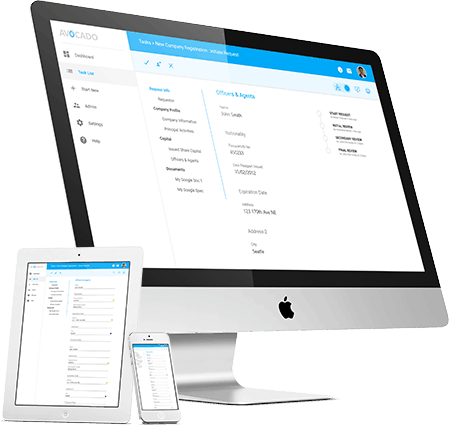With the turn of the calendar to 2025, Singapore companies should take note of the compliance deadlines for this year. Adhering to due dates is important, because failing to comply with regulations promptly carries substantial penalties. Early preparation for these deadlines is a vital task.
To assist busy business owners in navigating the requirements, we’ve crafted a concise checklist of crucial compliance due dates. For a quick overview, head to the “Singapore Company Deadlines in a Nutshell” section. For a more comprehensive explanation of each requirement, continue reading.
2025 Corporate Compliance Deadlines in Singapore
Meeting specific corporate deadlines is critical to maintaining your legal obligations. Here are the key corporate compliance deadlines for Singapore companies:
- Holding Annual General Meeting (AGM): Companies must arrange for the mandatory Annual General Meeting with shareholders within 6 months after the Financial Year End (FYE), unless exempted. Private companies can be exempted from holding AGMs if they send their financial statements to their shareholders within five months after the FYE. However, exemption doesn’t apply if shareholders request an AGM no later than 14 days before the end of the sixth month after FYE. In such cases, the company must conduct an AGM. Private dormant companies are also exempt.
Note! If your company is listed, you must hold an AGM within four months after your company’s FYE. Exemptions mentioned above do not apply to listed companies.
- Filing Annual Returns with ACRA: Singapore-incorporated companies are required to file annual returns with the Accounting and Corporate Regulatory Authority (ACRA) to ensure updated company information is recorded in ACRA’s register. The filing deadlines are:
- Within 7 months after FYE for non-listed companies.
- Within 5 months after FYE for listed companies.
Please note that companies with FYE established before August 31, 2018, are subject to different regulations regarding AGM and Annual Return filing deadlines.
- Preparing Financial Statements: All Singapore companies must compile annual financial statements before the AGM date, i.e. within 6 months after the FYE. These statements should comply with Singapore Financial Reporting Standards (SFRS) and include certain vital components, such as statements by directors, comprehensive income, financial position, equity changes, cash flow, and detailed notes. Financial statements are significant documents, relied upon by shareholders to gauge a company’s performance and financial health. In addition, external stakeholders, such as banks assessing loan eligibility, government agencies for grant approval, and those involved in tender evaluations, also rely on these statements.
Note that companies are required to retain financial records for five years after the financial year in which the transactions occurred.
2025 Tax Compliance Deadlines in Singapore
Adhering to tax compliance deadlines is crucial for Singapore companies to meet their fiscal obligations. Annual tax returns for companies encompass two filings: Estimated Chargeable Income and Corporate Income. Here are the crucial filing deadlines:
- File Estimated Chargeable Income (ECI): ECI is an estimate of your company’s taxable profits (after deducting tax-deductible expenses) for a Year of Assessment (YA). If companies do not satisfy the conditions to be exempted from ECI filing, they must report their ECI to the Inland Revenue Authority of Singapore within 3 months from the Financial Year End. Your company will usually receive a notification from IRAS to file its ECI in the last month of its financial year.
- Declare Company Income via Corporate Tax Return: By 30 November annually, companies must file corporate income tax returns for the preceding financial year. For example, if the financial year ended on March 31, 2024, the corporate income tax return must be filed by November 30, 2025.
- File Goods and Services Tax (GST) Returns: For companies registered under the GST, both the GST return and payment are due within one month after the conclusion of the accounting period covered by the return (which is one quarter). Examples of filing deadlines are:
| GST Accounting Period | Filing and Payment Due Date |
| Jan – Mar 2025 | 30 Apr 2025 |
| Apr – Jun 2025 | 31 Jul 2025 |
| Jul – Sep 2025 | 31 Oct 2025 |
| Oct – Dec 2025 | 31 Jan 2026 |
2024 Singapore Company Deadlines in a Nutshell
The table below summarizes the key compliance deadlines for Singapore non-listed companies.
| Compliance Task | Deadline |
| Holding Annual General Meeting (AGM) | Within 6 months after the Financial Year End, unless exempted |
| Filing Annual Returns with ACRA | Within 7 months after FYE |
| Preparing Financial Statements | Within 6 months before the AGM date, i.e. within 6 months after the FYE |
| Filing Estimated Chargeable Income (ECI) | Within 3 months from the FYE |
| Filing Corporate Tax Return | By 30 November annually |
| Filing Goods and Services Tax (GST) Returns | Within 1 month after the conclusion of the accounting period covered by the return (which is one quarter) |
Common Penalties for Non-Compliance
Non-compliance with statutory obligations can result in various penalties. It’s important for Singapore companies to understand these penalties to mitigate financial consequences. Here are the common penalties for non-compliance:
- Late Filing of Annual Returns with ACRA: The penalty for late filing of Annual Returns with ACRA starts at S$300 and escalates to S$600 if the filing exceeds a three-month delay.
- Late Submission of Tax Returns to IRAS: Failure to file tax returns punctually might result in an estimated Notice of Assessment (NOA), requiring payment within one month. Non-compliance could prompt IRAS to issue notices or summon the company to court, compelling adherence to tax filing requirements.
- Missed Deadline for GST Returns: If a company misses the deadline for filing GST returns, penalties ensue:
- Late submission incurs a penalty of S$200, which escalates by S$200 per completed month of delay, capping at S$10,000 per outstanding GST return.
- An estimated NOA might be issued, imposing a 5% late-payment penalty on the estimated tax amount.
- Consistent failure to file GST returns might lead to a summons, requiring individuals responsible for business operations to attend court proceedings.
How We Can Assist
At CorporateServices.com, we specialize in simplifying Singapore’s compliance landscape for businesses.
Our services cover:
- Efficient Incorporation: We offer hassle-free company setup, ensuring adherence to legal requirements for a smooth launch.
- Ongoing Compliance Support: Our expert team handles accounting, corporate secretarial tasks, and tax compliance, keeping your company in line with regulations.
- Expert Guidance: With our seasoned professionals, you’ll receive timely advice and personalized solutions, staying compliant and avoiding penalties.
Contact our team for streamlined incorporation, guidance through compliance, and support in fostering your Singapore business growth.
About CorporateServices.com
Headquartered in Singapore, CorporateServices.com, empowers global entrepreneurs with information and tools necessary to discover Singapore as a destination for launching or relocating their startup venture and offers a complete range of company incorporation, immigration, accounting, tax filing, and compliance services in Singapore. The company combines a cutting-edge online platform with an experienced team of industry veterans to offer high-quality and affordable services to its customers. Contact Us if you need assistance with setting up a new Singapore company or if you would like to transfer the administration of your existing company to us.
Share this Post

